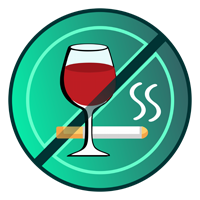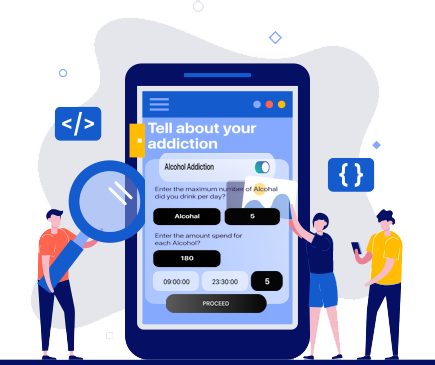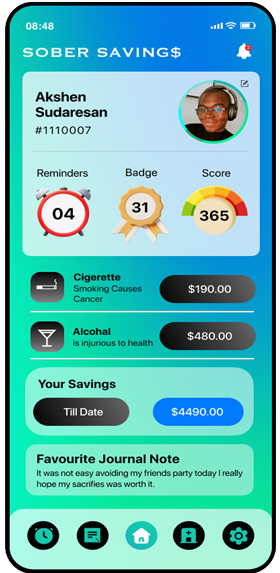
How do i give up alcohol
How do i give up alcohol
A Guide to Quitting Alcohol
Alcohol is a deeply ingrained part of many cultures and social gatherings. However, for some, its use can become problematic, leading to dependence and negative consequences on health, relationships, and overall well-being. Quitting alcohol can be a challenging journey, but it’s absolutely achievable with the right support and resources. This guide will equip you with the knowledge and strategies to successfully break free from alcohol dependence and reclaim your life.
Understanding Your Relationship with Alcohol
The first step towards quitting alcohol is acknowledging your current relationship with it. Here are some questions to consider:
- How much alcohol do you typically consume?
- Do you find yourself craving alcohol?
- Has alcohol use caused problems in your personal or professional life?
- Do you experience withdrawal symptoms when you try to cut back?
Being honest with yourself about your alcohol use is crucial for developing an effective plan to quit.
The Benefits of Quitting Alcohol
Quitting alcohol brings a multitude of benefits that span your physical and mental health, relationships, and overall well-being. Here are some of the positive changes you can expect:
- Improved Physical Health: Quitting alcohol can significantly improve your physical health. You can expect better sleep, increased energy levels, a stronger immune system, and a reduced risk of developing health problems like liver disease, heart disease, and certain types of cancer.
- Enhanced Mental Clarity: Alcohol can impair cognitive function and disrupt your sleep cycle. By quitting, you’ll experience improved mental clarity, memory, focus, and overall brain health.
- Reduced Anxiety and Depression: Alcohol can exacerbate anxiety and depression symptoms. Quitting can lead to a more positive outlook on life and a decrease in these conditions.
- Stronger Relationships: When you’re under the influence of alcohol, your relationships can suffer. Quitting allows you to be more present, engaged, and emotionally available to your loved ones.
- Increased Productivity: Alcohol can significantly impact your work performance and productivity. By quitting, you’ll experience improved focus, decision-making skills, and overall work ethic.
- Financial Savings: Alcohol can be a significant financial burden. Quitting can free up resources to spend on healthier activities and experiences.
- Improved Sense of Self-Confidence: Quitting alcohol can be a significant accomplishment, boosting your self-esteem and confidence.
Preparing to Quit Alcohol

Once you’ve decided to quit alcohol, it’s essential to prepare yourself for the journey ahead. Here are some key steps to take:
- Set SMART Goals: SMART stands for Specific, Measurable, Achievable, Relevant, and Time-bound. Instead of a vague goal like “drink less,” set specific goals like “I will limit myself to one drink per evening” or “I will not drink alcohol for the next month.”
- Identify Your Triggers: Recognize situations, emotions, or people that trigger your desire to drink. Once you identify these triggers, you can develop strategies to avoid them or cope with them in healthier ways.
- Talk to Your Doctor: Talk to your doctor about your decision to quit alcohol. They can help you develop a safe withdrawal plan, monitor your progress, and address any medical concerns.
- Build a Support System: Surround yourself with supportive people who understand your goals and will encourage you on your journey. This could include family, friends, support groups, or a therapist.
- Cleanse Your Environment: Remove alcohol from your home and avoid places where alcohol is heavily consumed. This will help reduce temptation and create a more supportive environment for your recovery.
Strategies for Quitting Alcohol

There are several strategies you can employ to help you quit alcohol successfully:
- Gradual Reduction vs. Cold Turkey: Depending on the severity of your dependence, you may choose to gradually reduce your alcohol intake or go cold turkey (quitting abruptly). Discuss these options with your doctor to determine the safest and most effective approach for you.
- Mindfulness Techniques: Mindfulness practices like meditation and deep breathing can help you manage cravings and cope with withdrawal symptoms.
- Replacing Unhealthy Habits with Healthy Alternatives: Find healthy activities to replace your drinking habit, such as exercise, spending time in nature, or engaging in hobbies you enjoy. This will help distract you from cravings and create a more fulfilling lifestyle.
- Reward Yourself: Reward yourself for reaching milestones in your journey to stay motivated. This could include engaging in a relaxing activity, trying a new hobby, or spending time with loved ones.
Dealing with Withdrawal Symptoms
Quitting alcohol can lead to withdrawal symptoms, which can range from mild discomfort to severe cases requiring medical attention. Here’s what you need to know:
Common Withdrawal Symptoms

- tremors, nausea, headaches, and difficulty concentrating.
- Severity of Symptoms: The severity of withdrawal symptoms depends on the severity of your dependence. Generally, symptoms peak within a few days and subside within a week or two.
- Seeking Medical Help: If you experience severe withdrawal symptoms, including hallucinations, seizures, or delirium tremens (DTs), seek immediate medical attention.
Staying Sober: Maintaining Your Progress
Quitting alcohol is just the first step. Here are some tips to help you stay sober for the long haul:
- Develop Coping Mechanisms: Develop healthy coping mechanisms to deal with stress, anxiety, and boredom, which can trigger cravings. These could include exercise, journaling, spending time with loved ones, or relaxation techniques like yoga or meditation.
- Avoid High-Risk Situations: Identify situations that might tempt you to drink and avoid them altogether, or develop strategies to navigate them safely. This might involve finding alternative activities or politely declining social invitations that revolve heavily around alcohol.
- Join a Support Group: Support groups provide a safe space to connect with others who are going through similar experiences. Sharing stories, offering encouragement, and receiving support from people who understand can be a powerful tool in staying sober.
- Therapy: Consider therapy to address underlying issues that may have contributed to your alcohol dependence. A therapist can help you develop healthy coping mechanisms, improve your self-esteem, and build resilience against relapse.
- Celebrate Your Achievements: Acknowledge and celebrate your achievements along the way. Every day you stay sober is a victory. Reward yourself for reaching milestones to stay motivated and maintain a positive outlook.
- Be Patient with Yourself: Relapses can happen. Don’t let them define your progress. View them as learning experiences and recommit to your goals. The most important thing is to get back on track and continue your journey toward a healthier you.
Additional Resources
Here are some resources that can provide additional support on your journey to quitting alcohol:
- National Institute on Alcohol Abuse and Alcoholism (NIAAA): https://www.niaaa.nih.gov/
- Alcoholics Anonymous (AA): https://www.aa.org/
- Substance Abuse and Mental Health Services Administration (SAMHSA): https://www.samhsa.gov/
- National Council on Alcoholism and Drug Dependence (NCADD): https://recovered.org/
Remember, you are not alone in this journey. With the right support and resources, you can successfully quit alcohol and reclaim your life. Take it one day at a time, celebrate your progress, and never give up on yourself.
By incorporating these suggestions, you can effectively communicate how Sober Savings strives to help the greatest number of people possible in their journeys towards recovery
- Track Your Savings: Sober Savings provides a free downloadable savings tracker ([link to downloadable tracker]) to
- Click Sober savings to Download Our App
- For More Queries view sober savings Website
- Sober savings Youtube channel
Share this:
Category
- addiction recovery
- Addiction recovery tips
- Addiction rehabilitation
- Addiction therapy
- Addiction treatment Chennai
- Addiction treatment options
- Alcohol abuse treatment
- Alcohol addiction recovery Chennai
- Alcohol addiction treatment
- Alcohol Awareness
- Alcohol intervention
- Alcohol recovery journey
- Alcohol recovery programs
- Alcohol recovery resources Chennai
- Alcohol relapse prevention
- Alcohol-free challenge
- Alcohol-free living
- Alcohol-free living Chennai
- Beating alcohol addiction
- Benefits of sobriety Chennai
- Best way to quit alcohol
- Best ways to quit smoking
- Breaking free from addiction
- Building a sober support network Chennai
- Chennai addiction recovery community
- Coping with cravings Chennai
- Deaddiction center
- Deaddiction centers
- Deaddiction counseling
- Deaddiction programs
- Deaddiction support
- diabetes
- Drug and alcohol deaddiction
- Find help for alcohol abuse
- Heal from alcohol addiction
- Health benefits of quitting smoking
- Healthy habits for recovery Chennai
- Healthy Life
- How to manage alcohol cravings
- How to overcome addiction
- How to quit addiction
- How to quit alcohol
- How to quit smoking
- Mental health and addiction Chennai
- Mindfulness in recovery Chennai
- Nicotine replacement therapy
- Nicotine withdrawal symptoms
- Overcome alcohol addiction
- Overcome smoking cravings
- Overcoming drug dependency
- Overcoming substance abuse
- Personal stories of recovery Chennai
- Quit alcohol support
- Quit drinking for good
- Quit smoking apps
- Quit smoking for good
- Quit smoking motivation
- Quit smoking programs
- Quit smoking success stories
- Quit smoking support
- Quit smoking support Chennai
- Rehab for addiction
- Relapse prevention Chennai
- Resources for quitting smoking Chennai
- Self-help for addiction
- Smoke-free lifestyle
- Smoking addiction help
- Smoking cessation
- Smoking cessation medications
- Smoking cessation programs Chennai
- Smoking cessation resources
- Sober lifestyle
- Sober lifestyle Chennai
- Sober living
- Sober living Chennai
- Sober Savings
- Sobriety programs
- Stay sober
- Stop drinking solutions
- Stop smoking tips
- Stopping smoking naturally
- Substance abuse help Chennai
- Support for addiction recovery
- Support groups for addiction Chennai
- Treatment for addiction
- Ways to beat addiction
- Ways to stop smoking